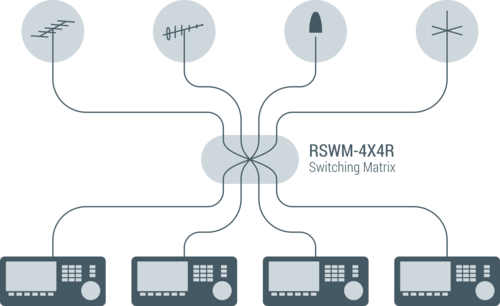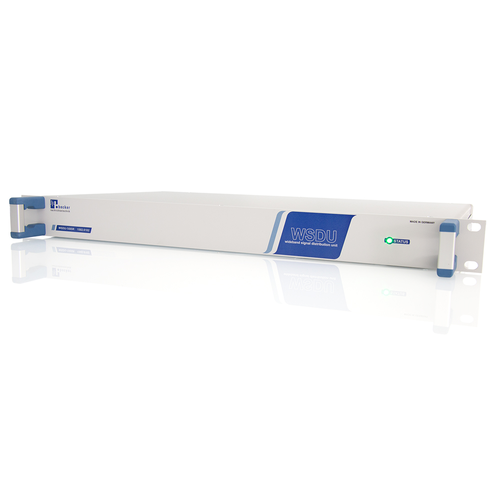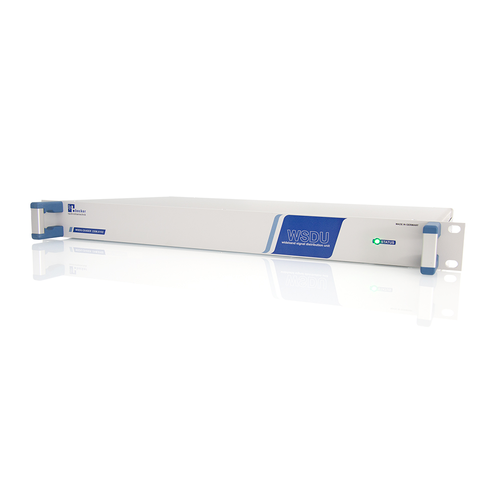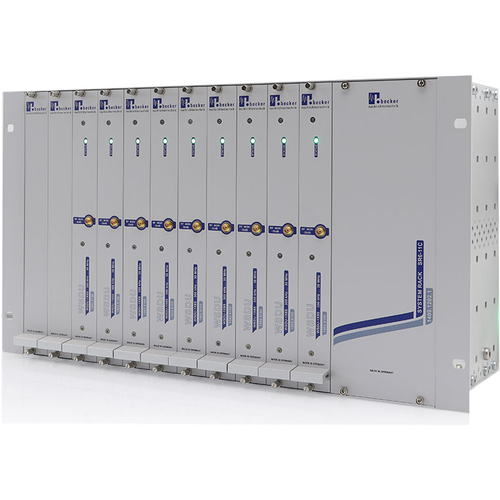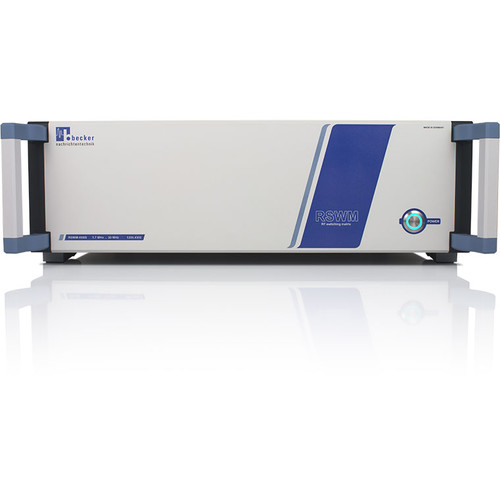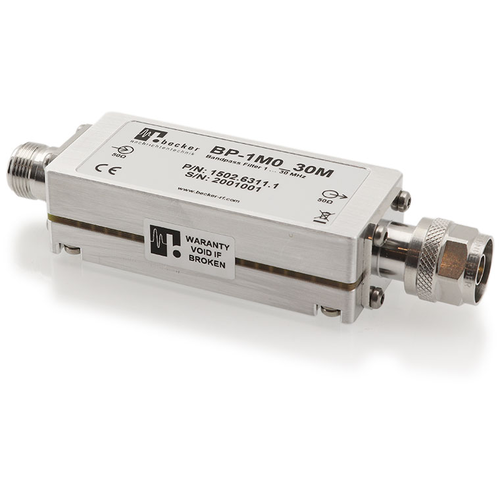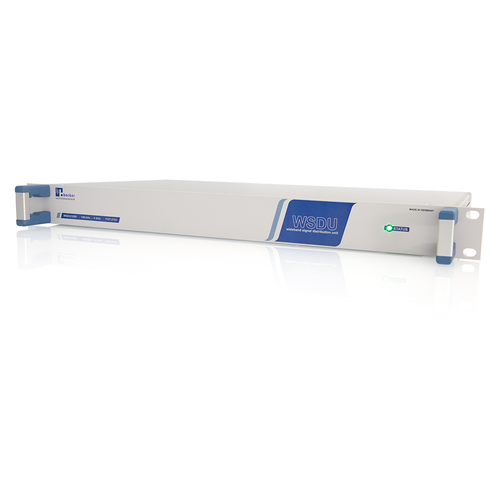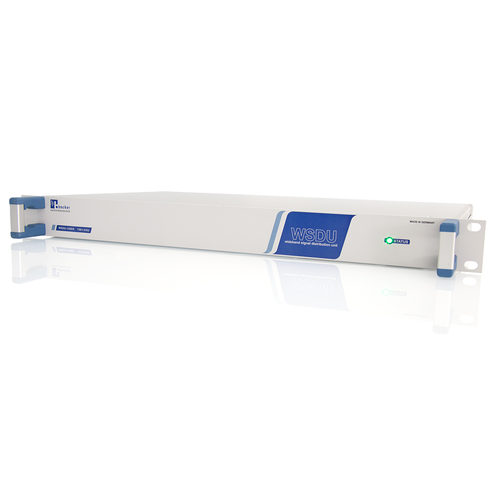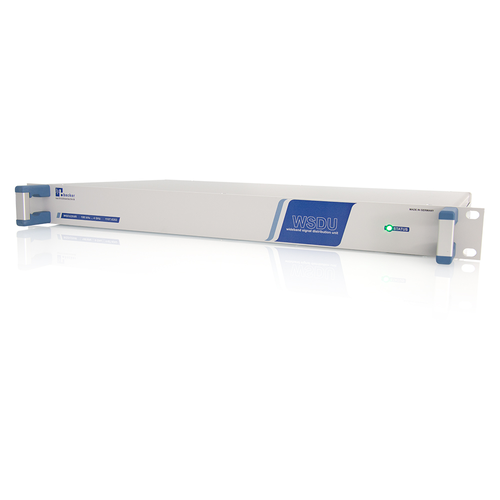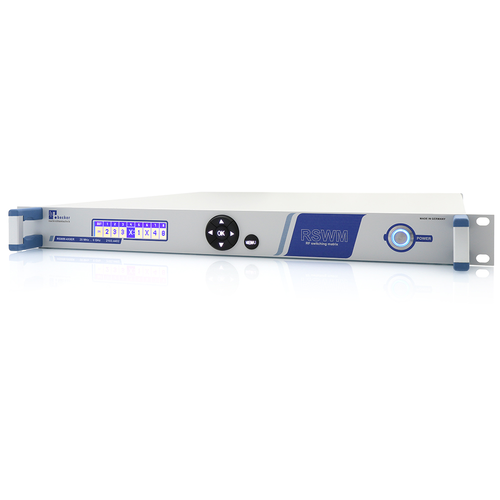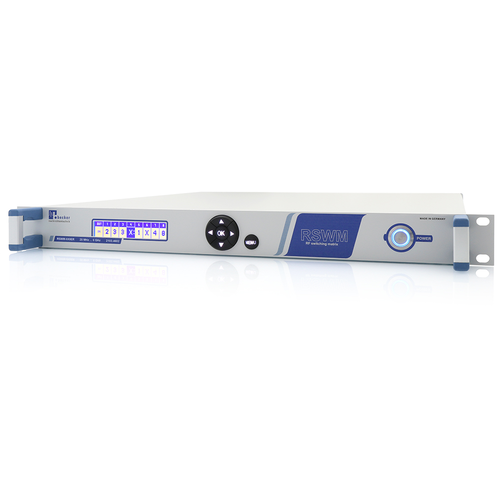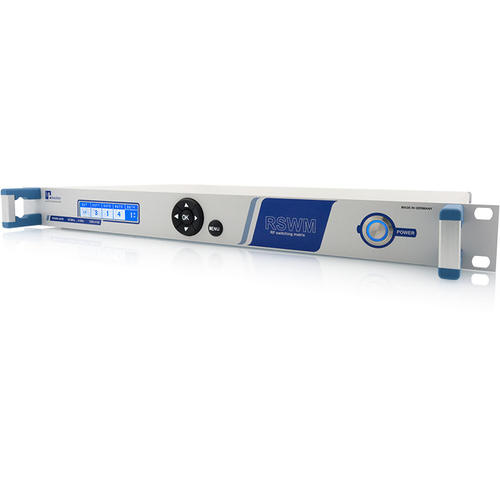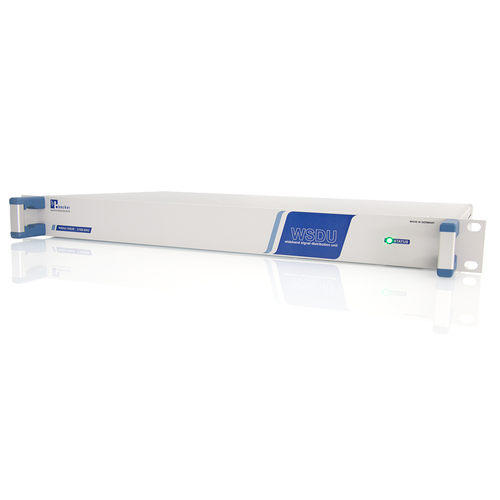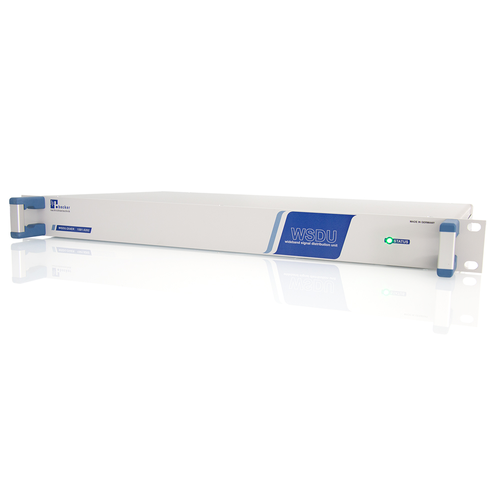Radio Monitoring
Radio monitoring as an application exists as long as radio communication has become ubiquitous. However, the application has to evolve constantly as new frequency ranges get in reach of technical capabilities and the amount of radio communication is ever increasing. Higher frequencies propagate less than lower frequencies, which in turn creates the necessity to employ radio monitoring locally and not just globally. The application of radio monitoring is not just an element of homeland security but also a technical necessity to guarantee that nobody is abusing spectrum and thereby creating undesirable interference for other applications. Emission limits will only be kept if the authorities verify the compliance with these limits.
In recent times radio monitoring has increased in importance due to a completely new trend, the use of unmanned aircraft or drones. Critical infrastructure must be protected (like airports) and no-fly zones must be imposed. The first line of defence against unauthorized drone usage is the detection of the drones by the radio waves of their remote-control communication.
Radio monitoring is a challenging application for the radio equipment, as it must deal with near and far sources of radio communication, and therefore be able to accept strong and weak signals equally. In technical terms this requirement translates into high dynamic range, high linearity and good noise performance of the receiver chain. These requirements are even higher nowadays as most digital radio communication signals use higher order modulation with its additional linearity requirement and its vulnerability to intermodulation. At the same time the computational load to deal with a myriad of unknown signals is high, and often multiple receivers are used in parallel to speed up processing.
Becker Nachrichtentechnik GmbH proposes several products that address this challenge and allow to connect one or more radio monitoring receivers lossless to one more antennas:
- Multicoupler to copy the signal of one antenna to multiple receivers without signal loss
- RF switching matrices to route the signals from multiple antennas to multiple receivers (e.g. when using multiple directional antennas. After detection multiple receives can be switched to the same direction)
- Broadband Switch Arrays to realize arbitrary signal routes
The following components with their specific characteristics are offered for the different areas for an optimal operation in radio monitoring applications:
Technology Whitepaper
On the Trade-off Between Bandwidth and Dynamic Range in Modern Radio Monitoring Systems
This white paper highlights some critical aspects of designing multi-antenna / multi-receiver systems. While a casual first assessment would typically ask for the best super-wideband and super-sensitive general purpose design, a closer look at the RF performance reveals that banded approaches do have significant advantages.
Learn more about our diverse portfolio of high-performance switch matrices.
Product Overview
Devices for Short Wave Applications, 200 kHz ... 30 MHz
HF-Multicouplers
8 Way Shortwave Signal Distribution
AC/DC Supply SNMP Function 1 input, 8 outputs 200 kHz ... 30 MHz +39 dBm OIP3
2-Section 4-Way HF/Wideband Signal Distribution Unit
radio monitoring 2 inputs with 4 outputs each section A: 200 kHz … 30 MHz section B: 20 MHz ... 8000 MHz
9 Channel 1X8 HF-Multicoupler with DC Bypass Function
19" - 6 U DC-Bypass Function
HF-Switching Matrices
Optional: Bandpass filter module
Bandpass Filter Module with Surge Arrester and Level Limiter, 1700 kHz ... 30 MHz
Short Wave LF Suppression V/UHF Suppression 1700 kHz ... 30 MHz
Bandpass Filter Module with Surge Arrester and Level Limiter, 1...30 MHz
Short Wave LF Suppression V/UHF Suppression 1...30 MHz
Devices for VHF/UHF-Applications, 100kHz / 20 MHz ... 4000 MHz
VHF/UHF-Multicouplers
High Dynamic 8 Way Multicoupler
radio monitoring 100 kHz / 20 MHz ... 4000 MHz 1 input, 8 outputs low NF +16 dBm OIP3
High Dynamic 1 to 8 Signal Distribution Unit
19", 1U communication intelligence (COMINT) 20 MHz ... 1400 MHz +38 dBm OIP3
High Dynamic 2 Section 4 Way Multicoupler
radio monitoring 100 kHz / 20 MHz ... 4000 MHz 2 inputs with 4 outputs each low NF
VHF/UHF-Switching Matrices
Non Blocking 4X8 Switch Matrix
non-blocking 100 kHz ... 4000 MHz radio monitoring guided webinterface 8 Inputs, 4 Outputs +20 dBm OIP3
High-Dynamic 8X8 Switch Matrix
non-blocking 100 kHz ... 4000 MHz radio monitoring 8 inputs, 8 outputs guided webinterface +17 dBm OIP3
High IP3 4X8 Switch Matrix
non-blocking 100 kHz ... 4000 MHz radio monitoring 4 inputs, 8 outputs guided webinterface +23 dBm OIP3
Non-Blocking 4X4 Switch Matrix
non-blocking radio monitoring 100 kHz / 20 MHz ... 4000 MHz 4 inputs, 4 outputs guided webinterface +26 dBm OIP3
Devices for Wideband Applications, 20...18000 MHz
Wideband Multicouplers
Extremely Wideband 8 Way Multicoupler
19", 1U 20 ... 8000 MHz radio monitoring 1 input, 8 outputs
Ultra Wideband 8 Way Multicoupler
radio monitoring 100 kHz ... 18000 MHz 1 input, 8 outputs
Extremely Wideband 2 Channel 4 Way Multicoupler
20 ... 8000 MHz radio monitoring 2 inputs with 4 outputs each
2-Section 4-Way HF/Wideband Signal Distribution Unit
radio monitoring 2 inputs with 4 outputs each section A: 200 kHz … 30 MHz section B: 20 MHz ... 8000 MHz
Wideband Switching Matrices
Extremely Wideband 4X8 Switch Matrix
non-blocking 20 ... 8000 MHz radio monitoring 4 inputs, 8 outputs guided webinterface
Extremely Wideband 8X8 Switch Matrix
non-blocking radio monitoring 20 ... 8000 MHz 8 inputs, 8 outputs guided webinterface
Extremely Wideband 4X4 Switch Matrix
non-blocking radio monitoring 20 ... 8000 MHz 4 inputs, 4 outputs guided webinterface
Latest modification: 14.11.2025



